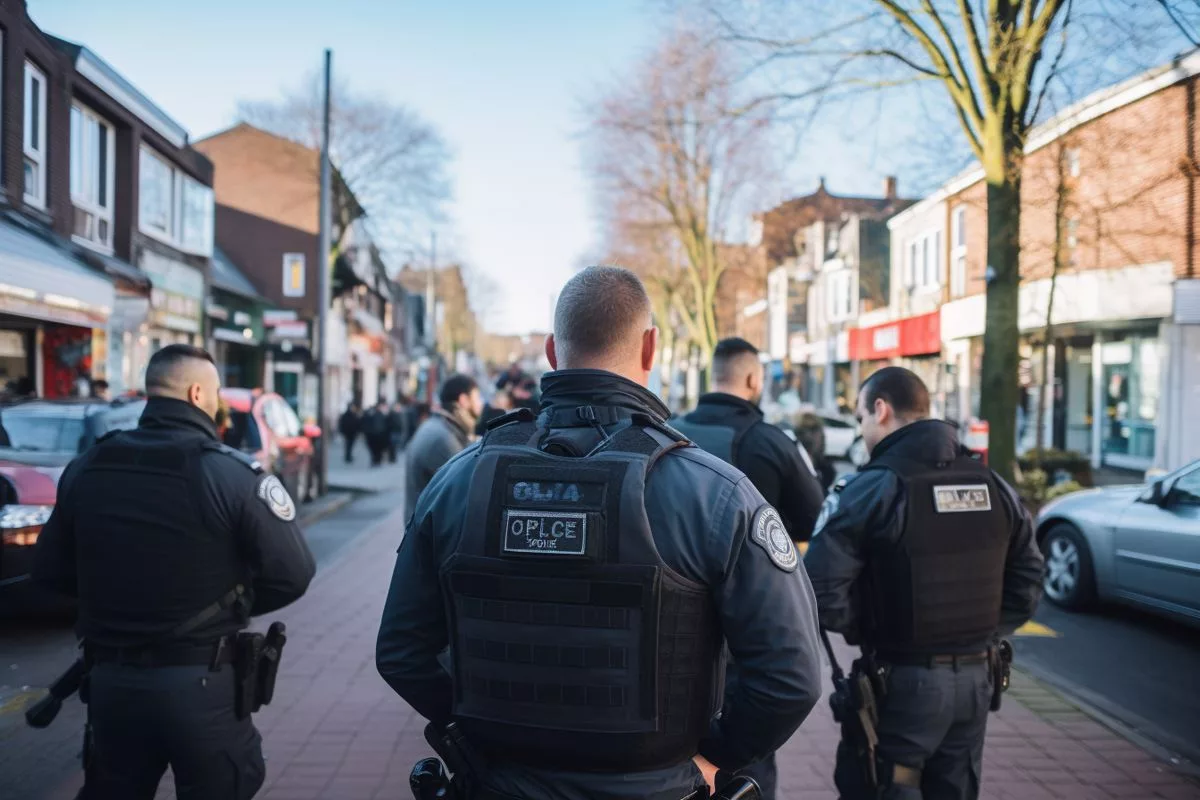The launch of tourism safety monitors in Cape Town has been delayed due to difficulties in finding a service provider to oversee the scheme, but the city is preparing to execute its most prominent festive tourism safety operation yet. Cape Town is expecting its visitor numbers to break records this summer and is preparing to station over 4000 uniformed City enforcement and emergency workers in shifts. Cape Town Tourism has taken additional steps to ensure the safety of visitors through an array of safety mechanisms, including the TravelWise platform and the Namola App.
What is the Delayed Launch of Tourism Safety Monitors in Cape Town?
The launch of tourism safety monitors in Cape Town has been delayed due to difficulties in finding a service provider to oversee the scheme. The project had a budget of R174.5 million and was expected to train and employ over 2200 young people in this fiscal year. The deployment is now expected to be ready by mid-December.
The Delayed Launch of Tourism Safety Monitors
The radiant metropolis of Cape Town, renowned for its dynamic culture and stunning scenery, is a preferred travel spot for many. Lately, the city has garnered attention, not for its allure, but due to the delayed inauguration of tourism safety monitors. Tourism Minister Patricia de Lille announced the plan earlier this year, assuring that the monitors would be operational by early November. However, it now seems that the deployment will only be ready by mid-December. This postponement has initiated formal talks between the city and the National Department of Tourism.
The tourism safety monitors project had a budget of R174.5 million and was expected to train and employ over 2200 young people in this fiscal year. A significant portion of these individuals were set to serve in popular tourist destinations in the Western Cape. The implementation of the initiative has stumbled, primarily due to difficulties in finding a service provider to oversee the scheme.
Tourism is a vital sector of Cape Town’s economy, and any security issues could potentially devalue its reputation. This is particularly important considering the recent criminal activities involving tourists and the expected influx of domestic and international visitors during the summer. Consequently, it is a collective duty to guarantee the safety of visitors and residents alike.
Enhanced Tourism Safety Operation
Despite the setback, Cape Town is preparing to execute its most prominent festive tourism safety operation yet. The city is expecting its visitor numbers to break records this summer and is preparing to station over 4000 uniformed City enforcement and emergency workers in shifts. These teams will be supported by 80 specially assigned officers who will focus on maintaining safety on popular tourist paths.
Among the areas that these officers will guard include the breathtaking hiking trails of Table Mountain, Signal Hill, Lion’s Head, and Devil’s Peak. They will also patrol the historical Bo-Kaap neighborhood, the lively Waterfront, and the city center. Table Mountain National Park and the central business district will also gain from the exclusive deployment of Tourism Unit personnel.
Safety Measures by Cape Town Tourism
Cape Town Tourism, the city’s official destination marketing agency, has taken additional steps to ensure the safety of visitors through an array of safety mechanisms. These include the TravelWise platform that offers safety information, practical advice, and emergency contact numbers. The Namola App, a free-to-use safety response application, employs GPS technology to locate users and quickly connect them with an emergency dispatcher.
The Band-Aid Programme is there to provide comprehensive help to tourists in distress, including replacing lost travel documents, offering counseling, arranging for emergency accommodation, or assisting in reporting fraud to banks. Tourists can also interact with Cape Town Tourism staff at prime locations such as Cape Town International Airport, Kirstenbosch Botanical Gardens, and City Hall.
Boosting tourism in Cape Town, fondly referred to as the ‘Mother City,’ is a mutually beneficial venture. Its success is a positive reflection on South Africa as a whole. Therefore, the city’s leaders are willing to cooperate with the National Department of Tourism, among others, to ensure that tourists leave with only pleasant memories of their stay.
Despite the hold-ups in the deployment of the tourism safety monitors, Cape Town remains a committed guardian of tourist safety. It exhibits the city’s unwavering dedication to making sure that every visitor, local or international, can explore the city’s attractions without any apprehensions. In these challenging times, Cape Town continues to stand firm, exemplifying the resilient spirit of South Africa.
1. What is the Delayed Launch of Tourism Safety Monitors in Cape Town?
The launch of tourism safety monitors in Cape Town has been delayed due to difficulties in finding a service provider to oversee the scheme. The project had a budget of R174.5 million and was expected to train and employ over 2200 young people in this fiscal year. The deployment is now expected to be ready by mid-December.
2. Why is the Delayed Launch of Tourism Safety Monitors Important?
Tourism is a vital sector in Cape Town’s economy, and any security issues could potentially devalue its reputation. This is particularly important considering the recent criminal activities involving tourists and the expected influx of domestic and international visitors during the summer. It is a collective duty to guarantee the safety of visitors and residents alike.
3. What is the Enhanced Tourism Safety Operation in Cape Town?
Cape Town is preparing to execute its most prominent festive tourism safety operation yet, stationing over 4000 uniformed City enforcement and emergency workers in shifts. These teams will be supported by 80 specially assigned officers who will focus on maintaining safety on popular tourist paths. Areas these officers will guard include hiking trails, historic neighborhoods, and the city center.
4. What is the TravelWise Platform?
The TravelWise platform is an additional safety mechanism provided by Cape Town Tourism, offering safety information, practical advice, and emergency contact numbers to tourists.
5. What is the Namola App?
The Namola App is a free-to-use safety response application that employs GPS technology to locate users and quickly connect them with an emergency dispatcher.
6. What is the Band-Aid Programme?
The Band-Aid Programme is there to provide comprehensive help to tourists in distress, including replacing lost travel documents, offering counseling, arranging for emergency accommodation, or assisting in reporting fraud to banks. Tourists can also interact with Cape Town Tourism staff at prime locations such as Cape Town International Airport, Kirstenbosch Botanical Gardens, and City Hall.








